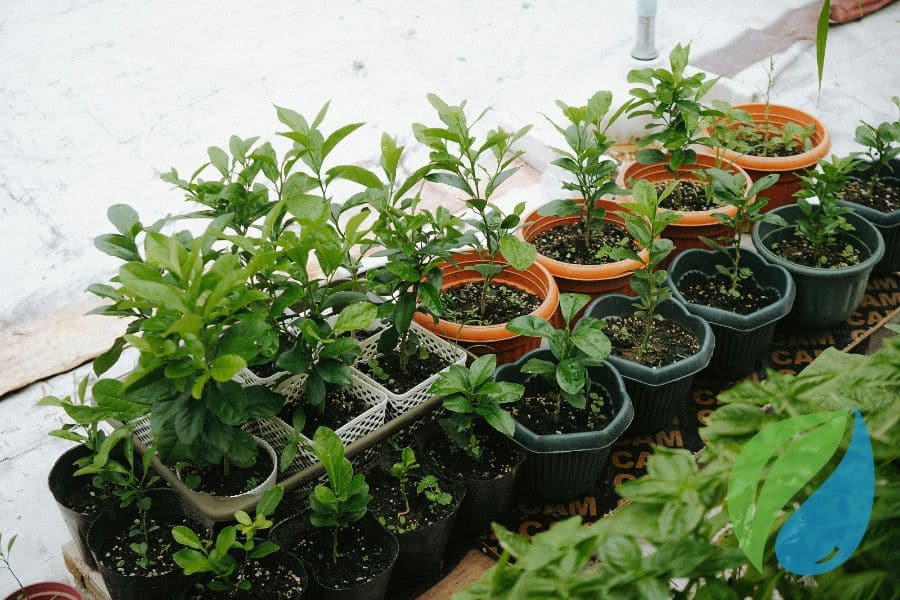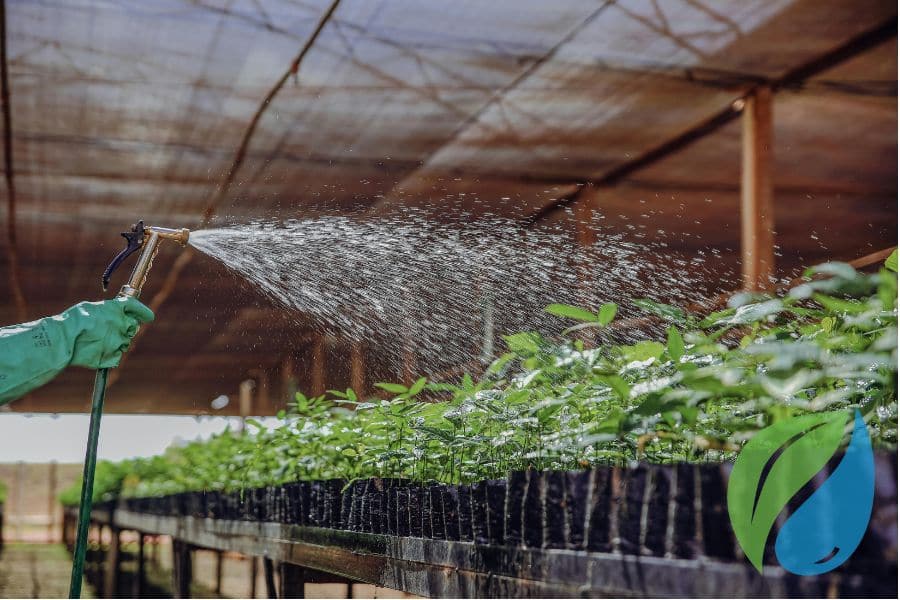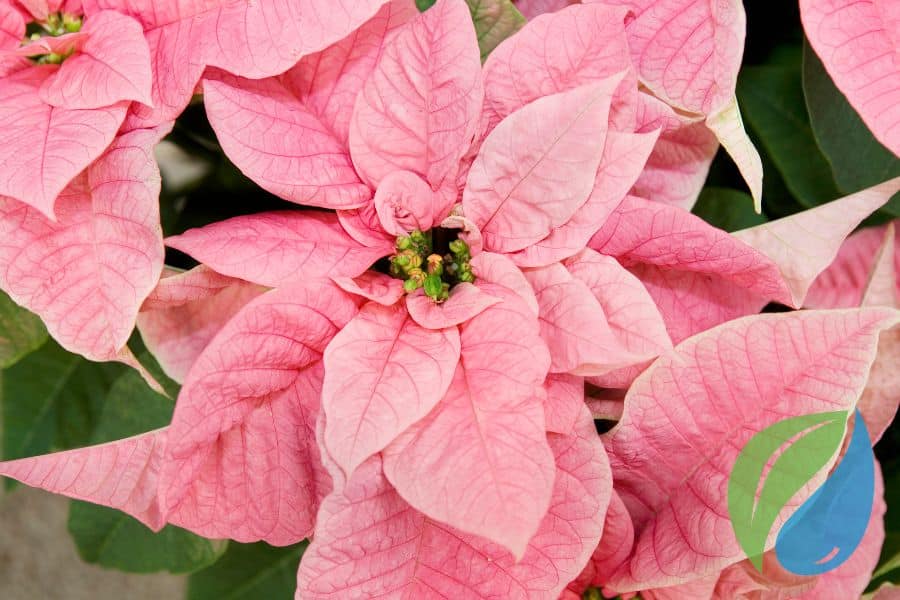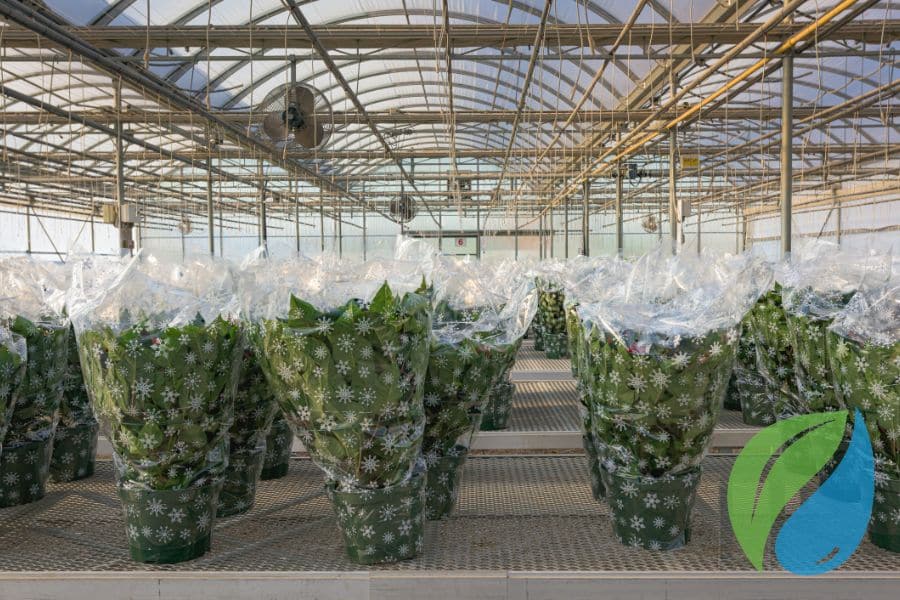pH and alkalinity directly affect how well fungicides, bactericides, and other disease control products work in greenhouse and nursery settings. Monitor and adjust pH and alkalinity to strengthen your disease control program, protect plant health, and improve overall profitability.
Maintaining plant health is all about balancing light, temperature, nutrients, and water management. One factor that is often underestimated in plant disease control is water quality, specifically pH and alkalinity.
pH and alkalinity can directly influence how effective your disease control products are, so take a few minutes to learn how they can be the difference between a crop that struggles and thriving, profitable plants.
The Role of pH in Disease Control
pH measures how acidic or alkaline your water or spray solution is. Many fungicides, bactericides, and insecticides are sensitive to pH. If water is too alkaline (high pH), certain active ingredients can break down quickly. This reduces their effectiveness before they even reach the plant.
Phyton 27 and most other disease control products work best with water that has a pH between 5.5 and 6.5. Copper-based products like Phyton 27 can become less stable in alkaline water, which lowers its activity against pathogens.
The Role of Alkalinity in Plant Disease Control
Alkalinity measures the concentration of bicarbonates and carbonates in water. Even if you adjust your water’s pH, high alkalinity will push it back up over time. This can affect your spray solution as well as the pH of your growing media, leading to nutrient imbalances and greater plant stress. These are conditions where diseases thrive.
By regularly testing your water and making adjustments, you can keep alkalinity in check. Acidifiers and water treatments can help you control alkalinity.
How Poor Water Quality Increases Disease Pressure
Let’s take a deeper dive into how poor water quality increases disease pressure on your plants. Poor water quality gives pathogens three major legs up on your plants.
- Reduced Efficacy of Disease Control Products: Alkalinity causes spray solutions to break down too quickly to provide adequate protection.
- Weakened Plant Health: High substrate pH can tie up essential micronutrients, leading to deficiencies that make plants more vulnerable.
- Favorable Conditions for Pathogens: Imbalances in water chemistry can create an environment where fungal and bacterial diseases spread more rapidly.
What Growers Can Do
What can greenhouse and nursery growers do to control alkalinity and help their plants thrive?
First, test your water regularly. We suggest at least seasonally, and more often if your water source changes. If alkalinity levels are too high, adjust your water’s pH before mixing in your products. Follow label guidance on your products for specific requirements. The optimal pH range of Phyton 27 is 5.5 to 6.5.
Disease management isn’t just about selecting the right product. You need the right conditions for those products to work effectively, too. By understanding and managing pH and alkalinity, you can maximize the performance of their disease control programs, protect plant health, and ensure a more profitable season.
Ready to protect your plants with effective, broad-spectrum disease control? Find a Phyton distributor near you.
Plant Disease Control FAQs
Why is water pH important for disease control products?
Because many fungicides and bactericides break down quickly in alkaline water, keeping spray solution pH in the optimal range (5.5–6.5) ensures maximum effectiveness.
How is alkalinity different from pH?
While pH measures acidity or alkalinity at a given moment, alkalinity measures the water’s buffering capacity—its resistance to pH change—driven by bicarbonates and carbonates.
How can high alkalinity affect plant health?
It can raise the pH of growing media, leading to nutrient lock-up, plant stress, and increased vulnerability to diseases.
What steps can growers take to manage pH and alkalinity?
Regular water testing, using acidifiers to adjust pH, and following label instructions for crop protection products all help maintain effective disease control.




